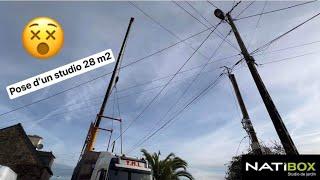The feng shui ball is a traditional feng shui ornament commonly seen in courtyards, hotels, shopping malls and other places. The following is a main introduction to it:
Structure and Principle
- Composition: Usually composed of a base (seat), a ball body, and a column (or fountain device).
- Principle: A water pump is used to circulate water from the base to the top, and the water flow pushes the ball to rotate continuously, forming a dynamic effect of "water circling the ball".
Cultural Connotations
- Feng Shui Symbolism: In traditional concepts, water represents wealth, and the ball symbolizes completeness and harmony. A rotating ball implies "(continuous flow of wealth)" and " (turning of good fortune)", which can enhance vitality and resolve negative energy.
- Psychological Effect: The dynamic water scene creates a peaceful atmosphere, relieves stress, and enhances the aesthetic appeal of the environment.
Materials and Types
- Materials: Commonly made of natural stones (such as marble, granite), copper, resin, etc. Different materials carry different meanings (e.g., stones symbolize stability, and copper signifies nobility).
- Types: Divided into small desktop ornaments (for home decoration) and large outdoor landscapes (such as gardens and commercial plazas).
Placement Precautions
- Location: It is suitable to be placed in open and ventilated areas (such as living rooms or entrance gates), avoiding direct facing of "turbid gas" areas like toilets or kitchens.
- Water Flow Direction: Indoors, the ball's rotation direction should preferably face the interior of the house (symbolizing "accumulating wealth"); outdoors, it can be adjusted according to the environment.
- Maintenance: Regular cleaning and inspection of the water circulation system are required to ensure smooth operation (stopped water is regarded as "stagnant wealth").
Modern Applications
In addition to traditional feng shui uses, feng shui balls are more often used as decorative water features. Integrated with modern design, they are incorporated into gardens and commercial spaces, combining cultural connotations with aesthetic values.
Structure and Principle
- Composition: Usually composed of a base (seat), a ball body, and a column (or fountain device).
- Principle: A water pump is used to circulate water from the base to the top, and the water flow pushes the ball to rotate continuously, forming a dynamic effect of "water circling the ball".
Cultural Connotations
- Feng Shui Symbolism: In traditional concepts, water represents wealth, and the ball symbolizes completeness and harmony. A rotating ball implies "(continuous flow of wealth)" and " (turning of good fortune)", which can enhance vitality and resolve negative energy.
- Psychological Effect: The dynamic water scene creates a peaceful atmosphere, relieves stress, and enhances the aesthetic appeal of the environment.
Materials and Types
- Materials: Commonly made of natural stones (such as marble, granite), copper, resin, etc. Different materials carry different meanings (e.g., stones symbolize stability, and copper signifies nobility).
- Types: Divided into small desktop ornaments (for home decoration) and large outdoor landscapes (such as gardens and commercial plazas).
Placement Precautions
- Location: It is suitable to be placed in open and ventilated areas (such as living rooms or entrance gates), avoiding direct facing of "turbid gas" areas like toilets or kitchens.
- Water Flow Direction: Indoors, the ball's rotation direction should preferably face the interior of the house (symbolizing "accumulating wealth"); outdoors, it can be adjusted according to the environment.
- Maintenance: Regular cleaning and inspection of the water circulation system are required to ensure smooth operation (stopped water is regarded as "stagnant wealth").
Modern Applications
In addition to traditional feng shui uses, feng shui balls are more often used as decorative water features. Integrated with modern design, they are incorporated into gardens and commercial spaces, combining cultural connotations with aesthetic values.
- Catégories
- Feng Shui



















Commentaires